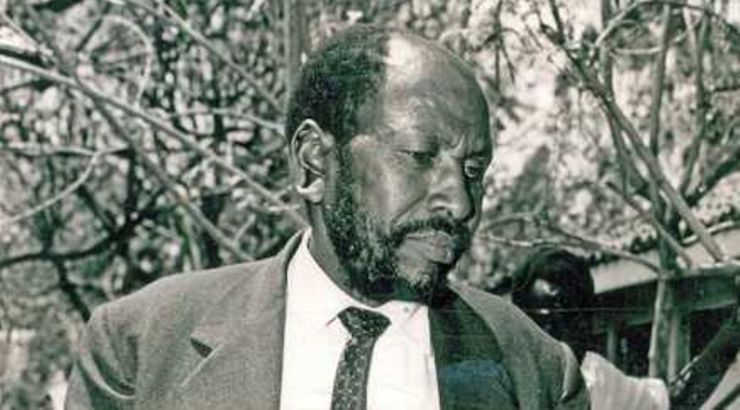News
Kung’u Karumba Family Seeks Justice After Land Seizure
Nine strangers have reportedly divided the property among themselves.

The family of Kung’u Karumba, one of the iconic Kapenguria Six, is seeking justice after nine individuals allegedly seized their inherited land in Nyandarua County.
The 57-acre piece of land, situated in the Mbuyu settlement scheme in Leshau Pondo ward of Ndaragwa constituency, has reportedly been taken by these individuals. It is claimed that one of them is a Lands Surveyor based in Nyahururu town, Laikipia County.
Peter Muchai, Karumba’s 82-year-old son, has called on the Cabinet Secretary for Lands, Alice Wahome, to take action against the nine land grabbers who have divided the property among themselves.
Muchai expressed the family’s distress, saying that it was painful to witness their father’s land, belonging to a man who fought for the country’s independence and was jailed for it, being taken by land grabbers.
“I want the government to take action on these people. It is well known that the land belongs to our late father,” Muchai said, adding that the situation is a further insult, especially after the family has been suffering since Karumba disappeared without a trace.
RELATED: How 30-Man Gang Demolished Niraj Shah’s Home While Police Watched
Karumba disappeared in 1974 during a business trip to Uganda. It is believed that he was abducted and killed by the oppressive regime of Idi Amin. Karumba left behind 16 children from three wives, and one of his wives’ families has been living on the farm since 1973.
Peter Muteru, a neighbour of the Karumba family, revealed that an investigation identified the individuals who have taken the land: George Maina, Stephen Waweru, Peter Kimondo, Eric Kizito, Fred Ogenga, Brenda Maina, Pauline Macharia, Mathew Kipkorir, and Regina Mwasho.
RELATED: Shock as ‘Land Mafia’ Grabs 500,000 Acres of State Land
The Kapenguria Six, which included Kung’u Karumba, first President Jomo Kenyatta, Paul Ngei, Achieng Oneko, Bildad Kagia, and Fred Kubai, were arrested in 1952 when a state of emergency was declared by the colonial government.
They were later tried in a Kapenguria court and sentenced to seven years in prison each for their role in leading the Mau Mau rebellion against the colonial government’s atrocities.
– Additional reporting by the Kenya News Agency.














